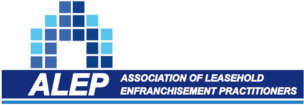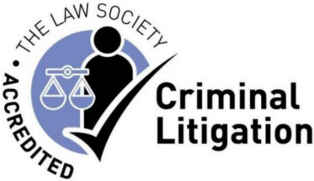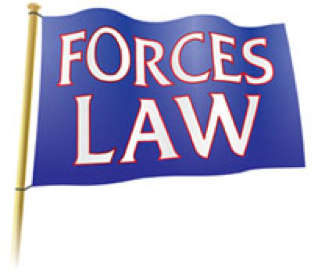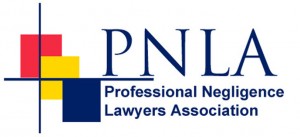Specialist Commercial Property Lawyers
Whether you are considering your first commercial lease or you have lots of experience in renting business premises, it is always important to seek guidance from knowledgeable and experienced business lease Solicitors.
Business leases come with many duties and responsibilities for both landlords and tenants, and it is vital to know what you signing up to. Making mistakes when becoming a business tenant can lead to large, unexpected expenses and commercial risk.
Here at Bonallack & Bishop, our goal is to ensure you enter into a commercial lease agreement that is beneficial, flexible and protects you from large unexpected repair, maintenance, and other costs in the future.
Need specialist Business Lease Solicitors? Call us on FREEPHONE 0800 1404544. Initial legal advice on the phone is always FREE.
How our business lease solicitors can help you
Our expert team of commercialproperty solicitors regularly advise on a wide range of business lease matters for small, medium, large, and multi-national businesses operating in the UK. And that includes commercial property disputes – have a team of 3 dealing with nothing but property dispute resolution. In particular, we can advise on the following:
· Business lease disputes
· Business lease renewal
· Business lease subletting and assigning
· Drafting new business leases
· Eviction and forfeiture
Click here to find out more about the forfeiture of commercial leases.
· Landlord and tenant issues, including landlord consents.
Click here to read more about how our property team support residential and commercial landlords.
· Licence for alterations
· Negotiating heads of terms
· Negotiating the terms of the lease
· Options
Click here to read more about Purchase Lease Options
· Rent reviews
· Security of tenure
· Service charge disputes
· Surrendering a business lease
· Variation of a business lease
What is a business lease?
A commercial lease is a contractual agreement between the property owner (i.e. the landlord) and a business seeking to use the premises in exchange for the payment of rent. The business lease explains all of the specific terms and conditions of this agreement, including the obligations and responsibilities of the landlord and tenant (e.g. when and how notice can be given and any obligations to make repairs).
Business leases are very different from residential leases. In particular, while most residential leases are simple AST’s ( assured shorthold tenancies) with pretty standard conditions, commercial leases can vary hugely.
What are heads of terms?
Heads of terms set out the most important aspects of a business lease agreement. The goal of using heads of terms in a lease agreement is to agree on the important terms before incurring legal expenses. Clear heads of terms identify potential deal-breakers, explain how the transaction will be structured, and speed up the creation of business leases. In the case of business leases, heads of terms:
· Detail the property’s extent and lease duration
· Outline the tenant’s main obligations when it comes to repairs, subletting, and alterations, and
· Outline important financial matters such as rent, rent-free periods, and rent review methods.
While there is no legal requirement to agree heads of terms in advance, they can often be extremely useful. In short they make sure that at the earliest stage there is no fundamental misunderstanding of the deal agreed between landlords and tenants.
Points to consider when entering into a business lease?
If you are considering entering into a new commercial lease arrangement in the UK, there are several important points that landlords and tenants should bear in mind before doing so.
- Term
One of the most important considerations is the length, or term, of the business lease. The term you agree to should reflect your business strategy. If you plan to grow rapidly beyond the capacity of the building, then you may want to consider a shorter lease term. On the other hand, if you think that the premises will continue to meet your needs for many years to come, you may opt for a longer lease. - Flexibility
Another key consideration is whether you want to enter into a break clause with your landlord or tenant. A break clause allows the tenant or landlord to bring the business lease to an end early without penalty. This is one of the most important clauses in any business lease as it provides flexibility in case your business needs change. Your business property Solicitors will explain how to make the break clause work for you, not just the other party. - Transparency of costs
A business lease should be transparent in terms of costs and fees, including base rent costs, service, charges, repair, and what are known as “dilapidations” (see below). Base rent, also known as fixed rent, is the minimum amount of rent due under a lease. Business leases with a base rent may include an escalation clause for taxes and operating expenses and a percentage rent clause. It is important to understand the amount of base rent you will need to pay, how frequently this must be paid, and the likely increase over time. - Rent reviews
These are often 1 of the most important clauses in any commercial lease agreement, particularly if you are taking out a longer lease. Many commercial leases will contain a clause allowing a rent review to agree at certain pre-agreed stages. For example 15 year lease might contain rent review clauses every 5 years. The clause should clearly set out the basis of that review. 2 of the most common bases for rent reviews are:
-
- Open market reviews– where the new rent is set as if the property was be advertised for let on the open market
- Index linked – this basis of rent review is particular common – because it’s simple and transparent. In short the rent will be increased in line with a specific index, often the Retail Price Index (RPI)
5. Service charges
These are entirely separate from rent payments. They are intended to cover the landlord’s costs of providing services, repairs, maintenance of common areas, improvements, insurance, and the management of business premises. If you are a business lease tenant, ask what the service charges include and make sure they are transparent and reasonable.
6. Dilapidations
Watch out for the dilapidations clause in your lease. Dilapidations mainly refer to the reinstatement, redecoration and repair of leased building at the end of the term.
Near the end of the lease, or even soon after, your landlord will probably serve what is referred to as a Schedule of Dilapidations new. This is often prepared by a specialist surveyor. And it will confirm what, if any, work is required to be done under the terms of the lease.
Wording of any dilapidations laws in your lease is critical – because a badly worded claim can mean you end up with the dilapidations claim way more than the cost of 12 months’ rent.
If your commitment is to return property in the state it was let out to you then make sure you take extensive photographs and records of the condition of the property on day one – and they are best annexed to any lease. Be particularly careful if you’re signing up to a fully repairing lease and a commitment to return it to the landlord to let out in full tenantable condition – that can need significant work after a long lease.
Other key questions
Some other issues which our business lease solicitors suggest that you should consider before entering into a business lease include:
· Lease Structure: Would you prefer a ‘fully repairing and insuring’ (FRI) lease, whereby the tenant covers all costs, including for repairs and maintenance, or a lease with a shared responsibility to cover these costs? Remember, there are pros and cons of both approaches for both the landlord and tenant.
· Alterations and Improvements: If you are a tenant, does the business lease agreement allow you to make alterations or improvements to the property and if so, under what conditions? If you are a landlord, if you will allow alterations, it is important to specify what can and cannot be done to your building.
· Permitted Use: Does the permitted use of the premises align with your business activities and comply with local zoning regulations?
· Lease Assignment and Subletting: Does the lease allow you to assign the lease to another tenant or sublet part of the premises? Landlords may need to grant consent, but it cannot be unreasonably withheld.
· Local regulations: Are there any local regulations and planning requirements that may affect the use of the commercial property?
· Insurance: Do you understand the insurance responsibilities of both parties, including liability insurance and property insurance?
· Security of Tenure: Do you have the security of tenure under the Landlord and Tenant Act 1954 (see below)?
My business lease – What is security of tenure?
Security of tenure gives business tenants the automatic right to retain possession of their leasehold premises once the term of the lease comes to an end. In other words, they have the statutory right to extend the lease at the end of the term. However, section 30(1) of the Landlord and Tenant Act 1954 says that a landlord may be able to oppose the automatic renewal of a tenancy if:
· The tenant does not meet their repair and maintenance obligations due to the poor condition of the property
· The tenant frequently delays rent payments
· The tenant breaches other important terms within the lease or for any other issues related to their use or management of the property
· The landlord offers reasonable alternative accommodation, taking into account the current lease terms and other circumstances, and if it meets the tenant’s needs
· The current lease is a sublease of part of a larger property, and the landlord wants to repossess the sublease for better overall property management and rental income.
· The landlord plans to demolish, reconstruct, or carry out substantial construction work on the property, and this cannot be done without getting the property back or
· The landlord plans to use the property for their business or as their residence after the current lease ends.
If you are concerned about your rights in relation to the security of tenure, why not give our specialist business lease solicitors are called – for specialist legal advice on your individual circumstances. And remember, that initial phone advice is always free.
Can I contract out of the security of tenure?
In certain circumstances, the landlord and tenant may agree to include a clause in the lease agreement to contract out of security of tenure. It is important to note that as a general rule, section 38(1) of the LTA 1954 prohibits contracting out of the security of tenure; however, it states that it can be done as long as the correct process is followed. Contracting out means that the tenant has no right to remain in the property at the end of the lease and they have no right to compensation from the landlord.
The procedure for contracting out of security of tenure is as follows:
1. Agree with the tenant: Both the landlord and tenant must agree in writing before signing the business lease that they want to exclude or “contract out” of the security of tenure provisions under the Landlord and Tenant Act 1954.
2. Get legal advice: The tenant should receive independent legal advice on the implications of excluding security of tenure. The tenant’s Solicitor will provide a certificate confirming that this has happened and the advice provided.
3. Provide notice: Before entering into the lease, the landlord must serve a specific notice on the tenant, known as a “Section 25 notice” or “Section 26 notice”, depending on the circumstances. This gives the tenant notice of the intention to exclude security of tenure.
4. Tenant’s acknowledgement: The tenant must then acknowledge receipt of the notice in writing and
5. Lease clause: The business lease should contain a clause that makes it clear that the parties have agreed to exclude the security of tenure.
Commercial landlord and tenant lease disputes
Disputes often arise between business landlords and tenants for a wide range of reasons. Unfortunately, such disagreements can lead to considerable stress and frustration. Disputes may occur because of late rental payments, service charges, termination, repairs, maintenance, cleanliness, noise, and damage. This is why it is important for both parties to take time during the business lease drafting and negotiation phase to understand exactly what they are getting into before signing on the “dotted line”.
In most cases, business lease disputes can be resolved by the landlord and tenant speaking to each other in good faith. Some landlords and tenants may avoid open communication for fear of admitting to a breach of the lease or making matters worse. In reality, if both parties speak honestly and with a view to reaching a compromise, a resolution can often be reached. If not, other non-contentious methods of resolving disputes, such as mediation, are extremely effective at resolving disputes. If this does not prove effective, it is advisable to instruct a property dispute solicitor who can explain your rights under the business lease and the options available to resolve the dispute in the fastest and most beneficial manner. there are Bonallack and Bishop, our very specialist property dispute team is three strong.
In some cases, if you can’t resolve your differences, you may need the assistance of the court. Through the courts, landlords may be able to seek eviction or rent recovery, and tenants may be able to claim for property repairs or lease renewal. Again these are all areas are business lease solicitors can help you with
Properly drafted lease agreements, regular communication, and expert legal advice from day one can help prevent and resolve business lease disputes, saving time and costs for all parties involved.
Click here to read more about commercial property disputes
What is a ‘mixed lease’?
In some commercial lease arrangements, the business owner may live in the same building (this is called a ‘mixed business lease’). A mixed business lease is a lease that allows for a combination of both business and residential use within a single property. Mixed leases can be complex and often involve different legal considerations compared solely residential or commercial rentals.
What are the most common forms of business lease?
There are several types of agreements in the UK, covering a range of different scenarios. Some of the most common types are as follows:
- Full-service or gross lease
With a full service or gross lease arrangement, the landlord covers all of the property maintenance, insurance, and tax for the property for a single flat fee rental payment. It is important to make sure that the rental fee for this type of lease reasonably covers the costs the landlord will need to pay and has not been overestimated. Gross leases are often used in short-term arrangements, especially in multi-tenant offices and retail spaces. - Single Net Lease
With a single net lease, the tenant pays the rent and property taxes, with the landlord paying all other costs including electricity, gas, water, and maintenance. Because the taxes associated with the property are paid by the tenant, not the landlord, this is called a ‘pass-through’ lease. Net leases are not commonly used in the UK. - Double Net Lease
Under a double net lease arrangement, the landlord is responsible for the cost of maintenance and utilities, but it is the tenant’s responsibility to pay rent, any property taxes, and their own insurance costs. Double net leases are the most commonly used type of business lease in the UK and are often used where a tenant rents part of a building which is wholly owned by the landlord. - Triple Net Lease
Under a triple net lease arrangement, the tenant is responsible for all costs associated with the property, including property taxes, building insurance, and maintenance costs.
If you are unsure which lease type you need for your business lease arrangement, your business property Solicitor will be able to advise you and draft the lease for your needs.
Negotiating a fair business lease agreement
The Royal Institution of Chartered Surveyors (RICS) publishes the Code for Leasing Business Premises, England and Wales (also called the ‘lease code 2020), which explains how to make sure that business leases are of a high quality and fair for both parties. It also promotes the use of comprehensive heads of terms during the legal drafting process.
Any landlord (or representative) who is a member of RICS or regulated by RICS must follow the following guidelines:
· Lease negotiations should be conducted in a positive and cooperative manner
· If one party is not represented by an RICS member or other property professional, the other party or their agents must inform them about the Lease Code 2020 and its Supplemental Guide and recommend seeking professional advice.
· The terms of a lease for a vacant property must be included in written heads of terms, labelled as “subject to contract.” These terms should summarise important information such as the property’s details, special rights (e.g., parking or data access), lease duration, renewal options, guarantors, rent adjustments, service charge responsibilities, rights to sublet, repair obligations, and alteration rights.
· The landlord or their leasing agent should establish heads of terms before circulating the initial draft lease. The Lease Code 2020 does not specify the exact terms in the heads of terms, but parties should consider the best practices outlined in the Code when drafting these terms. The rules for heads of terms also apply to lease renewals or extensions, except for terms that follow the existing lease.
Our experienced business lease solicitors can guide you through the process of drafting and negotiating your commercial lease based on best practice and their experience and expertise in this area.













